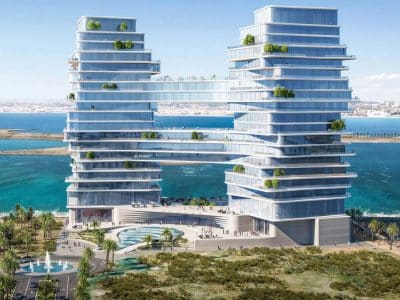Abu Dhabi’s real estate markets have generally been stable during the first quarter of 2016 despite of the continued impact of lower oil prices and a reduction in domestic government spending, a new report said on Tuesday.
While demand has reduced, supply completions have also reduced compared to previous years, leading to relatively stable market conditions, JLL said in its latest Abu Dhabi Real Estate Overview report.
Supply completions are at a 10 year low due to developers remaining cautious, tightened liquidity and more extensive regulation – leading to smaller scale releases and developments being phased over time, the report noted.
The report said a total of 719 units were delivered in Abu Dhabi during the first quarter of 2016 bringing the total residential stock to approximately 246,000 units.
Approximately 4,000 units are expected to enter the market by the end of 2016 mainly within Danet Abu Dhabi, Reem Island and Saadiyat Island, JLL said.
It added that prime rents have remained stable this quarter -averaging AED163,000 per year for 2 bed apartments within investment areas – due to relatively low vacancy in quality schemes.
Sales prices have also remained stable at AED16,000 per sq m but the reduction in transaction volumes may put further pressure on prices this year, JLL said.
David Dudley, head of Abu Dhabi Office at JLL MENA, said: “For the residential rental market, while demand growth has reduced, this is offset by a major reduction in annual supply completions leading to relatively limited vacancy in high quality schemes.
“Annual supply completions historically averaged 10,000 units per annum – however current supply completions are at a fraction of that.”
He added: “During 2016, we expect residential rents to remain relatively stable in some sub-sectors, with a modest decline in others – but given relatively tight vacancy rates in quality schemes and limited supply completions, we are not expecting a dramatic fall in prime rents.
“In the event that the current pause in government spending remains for a while longer we could see more significant downward movement of rents.
JLL said over recent years, prime residential prices went up at 25 percent per annum which was unsustainable, adding that as the market softened during 2015, prices have remained stable but transaction volumes have dropped significantly.
“During 2016, we expect transaction volumes to remain low which may start to put pressure on sales prices,” Dudley added.
“While the market has generally been stable, signs of caution remain – with a significant reduction in government domestic spending and a decline in transaction volumes and sentiment. We still expect demand growth to continue from projects commenced while oil prices were high, but job cuts and reduced investment will slow down demand growth.
“While there are some initial signs of government spending starting to return – particularly for mega tourism attractions – we expect caution to prevail. The extent to which market stability is maintained very much depends on the return of domestic government spending in spite of a reduction in oil revenues.”








